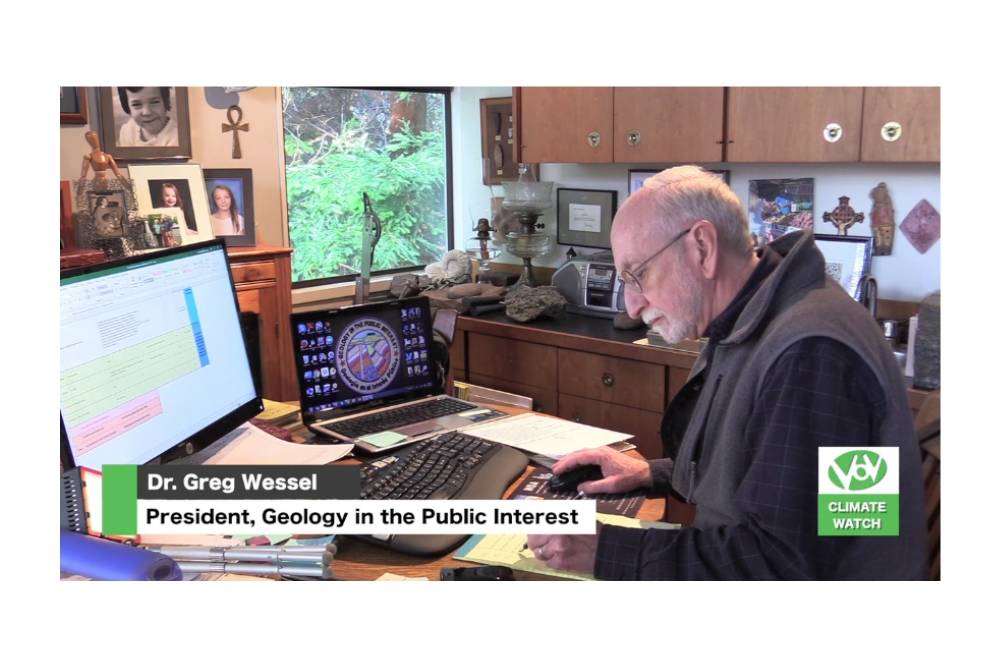Climate Watch, a new video series from Voice of Vashon, has a global focus while looking at the causes and effects of climate change. But Producer Mark Hickling said that islanders will take center stage for their efforts on Vashon to prepare for a warming planet.
“All we have to go on is the best predictions of the scientists who are looking at this most closely,” Hickling said.
For him, that science is enough to justify filming multiple episodes for the series — two are now available to watch on the VoV website, voiceofvashon.org, and the series will also play on VoV TV (Comcast Cable Channel 21).
In a long, in-depth interview with atmospheric scientist Hans Christen Hansson, a professor at Stockholm University, he said he learned that climate change is happening three times as fast in the Arctic as it is for the rest of the Earth. In the episode, available online, Hansson explains that ecosystems cannot adjust with such radical change so quickly.
“In the space of half an hour, my jaw just dropped to the floor,” said Hickling. “That’s when I realized this is bigger than one video. This is really, really big.”
Hickling was in Stockholm to attend the four-day-long Geoscience and Society Summit and to follow islander and geologist Greg Wessel as he consulted with stakeholders and other scientists. Wessel’s nonprofit, Geology in the Public Interest, spent years working with nine other geoscience organizations to host a conference where researchers could examine and consider ways to facilitate collaboration across cultural and national divides while promoting the sustainability of natural resources, global health and resilience, according to the group’s website. Hickling said the perspectives of those on the vanguard of climate research were too important not to share with climate-conscious islanders.
“I see my job as bridging the gap between science and people, just helping [to fix] this communication breakdown that we have,” Hickling said, adding he wants to get around the politics of climate change that inhibit discussion of the facts.
“We have a major carbon dioxide problem,” he said. “The earth spent millions of years burying carbon sequestered by ancient forests — burying these ancient forests deep underground, turning them into oil and gas and coal, and we’re burning it all up in 100 years.”
Hickling said it is imperative for the science community to get the word out about climate change to policymakers and the public, as well as expand outreach to schools.
“We really hope the next generation of school kids takes up this focus because they’re really going to be the ones who have to solve these problems,” he said.
Wessel agrees. He said that middle and high school students across the nation should be cognizant of what is coming and demand changes from the government and society.
“The average person doesn’t fully understand the magnitude of the situation, and we need to do a better job of educating, especially our youth,” he said.
But Wessel added that he doesn’t expect it to be easy.
“To me, the biggest challenge we’re addressing is one of momentum,” he said, noting the complacency of some Americans around climate change, including in Washington, D.C., where the Trump Administration has moved to roll back or eliminate many environmental protections.
“We basically have one generation to almost completely change the way we do everything,” said Wessel, noting that indifference toward change is not a new problem, as outdated and old technology and infrastructure have endured in the country for generations.
Wessel urged that further conversations about the local and federal responses to climate change must take place, with a real emphasis on finding solutions, something he thinks islanders can appreciate.
“The U.S. has to go down that road, and I think that at some point we will — I just hope it’s not too late,” he said.



